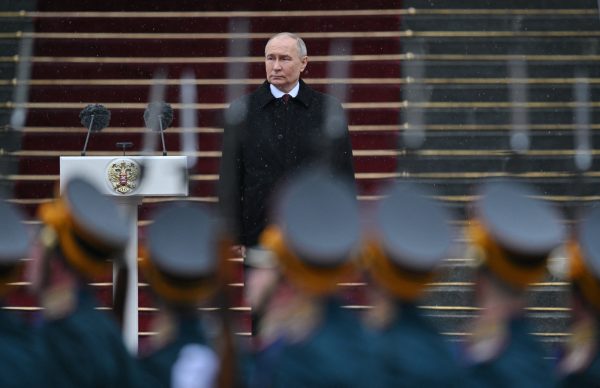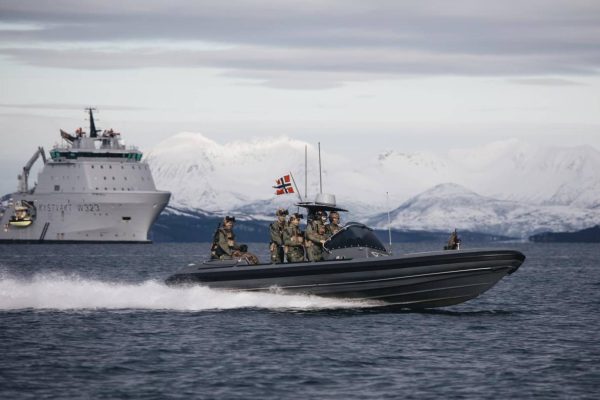Russia’s attack on Ukraine is a matter of huge importance and has inevitably shone the spotlight on collective deterrence and defense, NATO’s linchpin principle and goal. Yet the other two core tasks of the alliance, crisis prevention and management, and cooperative security remain key. While the former is largely reactive in nature, the latter revolves around an incremental engagement with governments and stakeholders that has increased significantly since the early 2000s.
The recently published NATO Strategic Concept highlights the complementarity of these three core tasks and confirms the alliance’s commitment to work with partners in the Middle East and North Africa (MENA) and Sahel regions “to tackle shared security threats” which include war, terrorism, and rising climate change-related challenges.
Intuitively, attention to these regions is motivated by the transnational and fluid nature of its challenges, whose spillovers directly affect Europe’s security, whether in terms of terrorist attacks, irregular energy supplies, or climate-induced displacements and mass migration, to name but a few. Against this backdrop, in 2016 NATO introduced the concept of “projecting stability”, whereby security cooperation and crisis prevention and management, play a central role.
Given the far-reaching impact of these threats and the requirement for a joint approach to confronting them, NATO has deepened relations with countries able to cooperate, commit resources, and share the burden of crisis management. Security partnerships aimed at transferring NATO standards to selected MENA states have been considered an integral part of the approach. Established in 1994, the Mediterranean Dialogue represents the first attempt to provide an institutional framework for political and military cooperation between NATO and five North African nations (Mauritania, Morocco, Algeria, Tunisia, and Egypt) plus Israel and Jordan. Ten years later, the launch of the Istanbul Cooperation Initiative (ICI) served the same purpose with four countries of the Gulf Cooperation Council (GCC): Bahrain, Kuwait, Qatar, and the United Arab Emirates.
At the same time, ad-hoc, bilateral security partnerships have been established within the wider “partners across the globe” umbrella, with Iraq a case in point. Besides offering a space for political dialogue, all these multilateral and bilateral initiatives center around the provision of military training and capacity building, security sector reform (SSR), and staff-to-staff engagement via access to NATO’s education programs for partners’ military officers. The NATO–ICI Regional Centre in Kuwait, created in 2017, has allowed military personnel from GCC countries, including non-ICI Saudi Arabia and Oman, to attend courses on cybersecurity, maritime and border security, and infrastructure protection, among other issues.
The underlying idea is to use military diplomacy as a means to project stability, enhance interoperability with regional partners, improve the accountability and transparency of their security sectors, and help them deal with increasingly complex security issues. The region has paid a heavy toll because of recurrent conflicts and terrorism, state fragility and poor governance, and transnational organized crime; to make things worse, the impact of climate change is exacerbating pre-existing socio-economic vulnerabilities and promises to create an even more explosive mix in the near future.
However, while NATO’s commitments beyond its Southern Flank have multiplied, true stability in this vast geographic theatre remains distant, Russia and China have expanded their influence, and local security services have often undergone a worrying process of hybridization and accountability dilution. In addition to its naval base in Tartous, Syria, Russia maintains an informal military presence in Libya, Mali, Sudan, and other African countries thanks to Kremlin-linked private military contractors, while China represents the major economic player in most MENA countries in terms of infrastructure development and telecommunication technology. In the long run, Chinese penetration is likely to expand beyond the economic realm and pose a direct threat to European countries’ and NATO’s interests.
So, does this mean NATO’s efforts have been useless? Certainly not. But the alliance’s activities, however diversified, have had mixed results and their current format may soon become unsuited for a situation where competitors step up military diplomacy and complement it with generous weapons sales. Indeed, the provision of advanced defense capabilities and intelligence sharing is what interests regional countries the most, but this option is beyond NATO’s cooperation portfolio. Moreover, as noted by Silvia Colombo, several factors such as poor regional integration, varying security sensitivities, competing interests among NATO allies, and varied perceptions of the alliance, have hindered the creation of a more substantive political engagement on regional developments.
Hence, if not accompanied by appropriate policy follow-up, military or security cooperation alone is not enough. Iraq provides an interesting example of the limits of security assistance given its domestic political turmoil, rampant corruption, and repeated governance failures. The new NATO mission in Iraq, launched in 2018 at the behest of the government in Baghdad, aims at improving the effectiveness, transparency, and accountability of the Iraqi security forces (ISF) through capacity building, training, and SSR initiatives.
However, the ISF remains vulnerable to resurgent terrorist attacks, displays a “limited ability” to secure the country’s borders and suffers from entrenched corruption. Praetorianism and political loyalties also continue to undermine the ISF’s accountability, as shown by the scores of demonstrators and activists killed, kidnapped, and tortured during and after the mass protests of October 2019. Finally, the presence of paramilitary groups operating outside state control but with strong ties to security institutions further complicates security cooperation with NATO and risks indirectly hijacking the alliance’s efforts and resources in favor of the wrong counterparts.
NATO’s cooperative security and crisis management efforts remain a key tool for improving security and stability in the alliance’s southern neighborhood, but they are no silver bullet. This is why parallel political engagement aimed at clearly defining the scope and goals of cooperation is crucial, also helping the alliance to limit the influence of Russia and China in the region. For this double-pronged approach to be successful, NATO should consider the following measures:
- Show partners a real commitment to structured cooperation that is beneficial in the long-term and on multiple levels rather than ad-hoc programs limited to security alone. Given NATO’s limited toolbox, this also requires greater cooperation with other entities such as the EU and regional organizations like the GCC, the Arab League, and the African Union.
- Prioritize the engagement of younger generations that includes constant dialogue with civil society and grassroots organizations about security needs and grievances, as well as possible solutions. This is essential to ensure sustainability and the development of healthy civil-military relations. Support for, and awareness of NATO’s activities, are also key factors in the fight against disinformation.
- Ensure local ownership and — as observed — avoid framing partnerships as simply a search for “like-minded partners“ and “democratic countries versus the rest.” Instead, focus on how to create best practices and integrate, as far as possible, NATO’s standards and approaches.
- Create and apply both “on the fly” and “ex-post” performance indicators to assess the impact of alliance security cooperation programs, in order to adjust the scope and objectives and avoid a one-size-fits-all approach.
- Consider the appointment of a special representative for the MENA region, tasked with overseeing NATO activities and guaranteeing timely and adequate high-level policy engagement.
Despite many constraints, cooperative security remains a cornerstone of NATO’s engagement across its southern neighborhood but shifting geopolitical realities and new threats require a rethinking of its original framework and goals. Failing to do so entails enormous risks.
Federico Borsari is a Leonardo Fellow at the Center for European Political Analysis (CEPA), NATO 2030 Global Fellow, and a Visiting Fellow at the European Council on Foreign Relations (ECFR). His main research interests include security and defense dynamics, transatlantic security relations, and the impact of new technologies on warfare.
Europe’s Edge is CEPA’s online journal covering critical topics on the foreign policy docket across Europe and North America. All opinions are those of the author and do not necessarily represent the position or views of the institutions they represent or the Center for European Policy Analysis.





